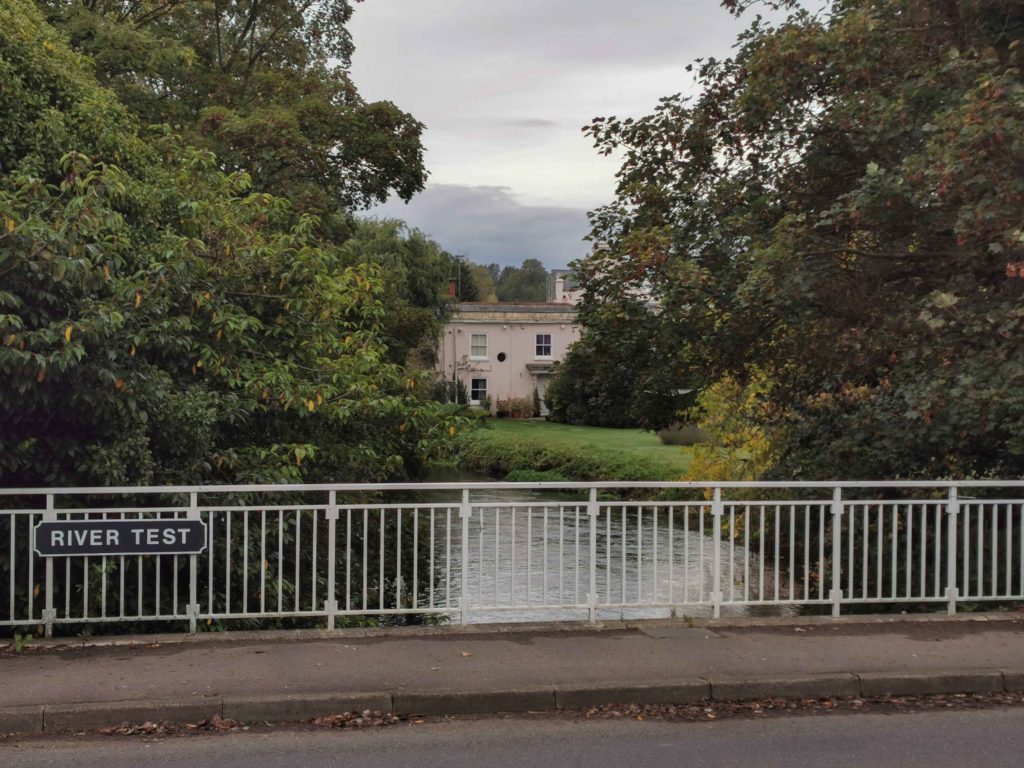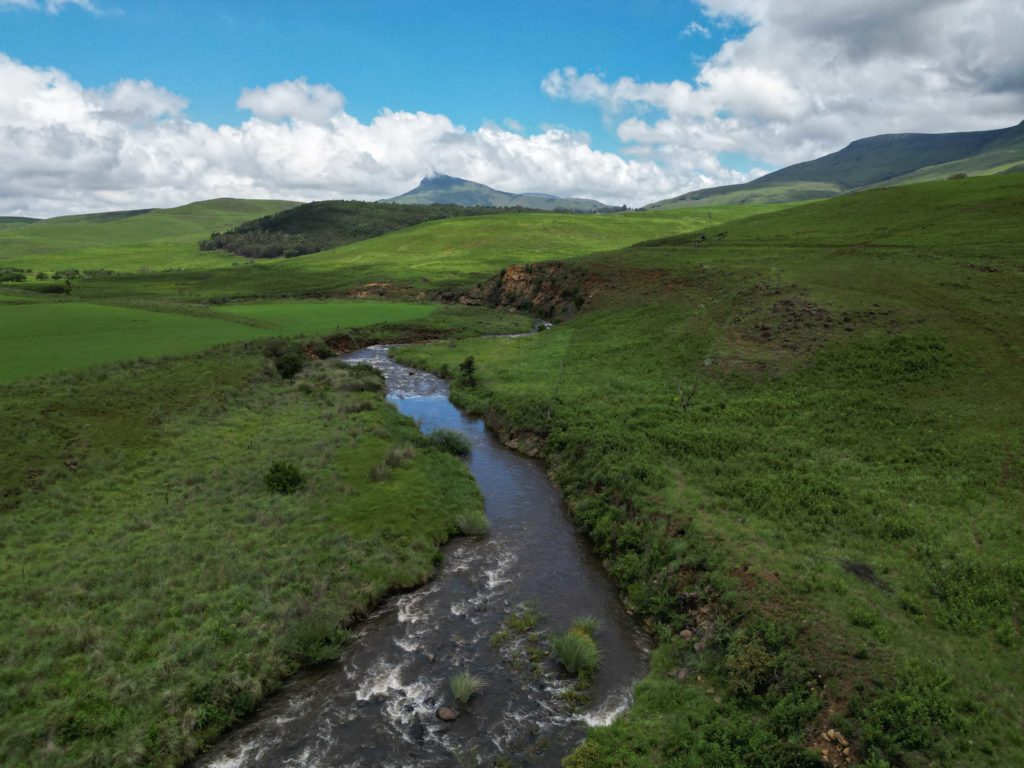
I was leaning over the bridge rail on the river Test, admiring the swans downstream, when a bloke pulled up on his bicycle and we got chatting. He picked up on the foreign accent and asked where I was from. He gave a knowing nod to the answer, and reported that he had “done South Africa”. I extoled some of our flyfishing opportunities as one does to a fellow fly-fisherman. I asked if he had encountered the Bushmans and the Mooi. The Eastern Cape Highlands perhaps? I thought he might enquire as to the nature of the fly-fishing, or the size of the Trout he might expect, but he felt that he had ticked us off his list. Three days in the Lord Nelson Hotel in Cape Town and three days in the Kruger Park. Done. He wanted to talk about himself, and about Montana. He had been there in the spring, and in New Zealand a few months prior. It was important to him that I should know that.
That example is at the far end of the continuum; the spectrum of geographic immersion. It sits at the extractive-relationship end of things. A quintessential example of unengaged visitation, in which the tourist indulges in fleeting interludes that precede boredom, before flitting off to his or her next destination. His dialogue typically includes the size and number of fish, and the quality of the meals at the lodge. His window on a fly fishers’ destination is narrow, and can typically be measured in US dollars. It is a notion that bubbles to the surface of cognition in parallel to the difference between the tourist and the traveller. The one moving from one catalogued destination to another, to take a picture and commit a fact or two to memory (for dinner table conversations in years to come). The traveller, on the other hand, is one who converses with the landscape, the river, the Trout. His sojourn exceeds that of the tourist’s in depth and breadth. It will almost certainly be less comfortable.
The occasional visitor’s position is a little further back from the far end of the slider.
The occasional visitor: The one who buys a ticket at reception, along with a chocolate bar, and heads to the starting point below the bridge, refamiliarizing himself with the steepness of the path since his visit several months ago. His mental journal is bookmarked with visits. Little fluttering cognitive notelets, in which the place he visits is stamped with the image of a good fish, a bird sighting, or a river level, punctuated by departures. Departures, with a belt bag of indulgent memories fully stocked. He has perhaps developed a few notions of flies that do better than others on that water. His footprints in the river sand are soon washed over, and his presence is felt by him, but to the landscape the experience is not reciprocal. The making of place is innocently arrogant, and centres on his fleeting experiences at moments in time.
When my friends and I visit the Eastern Cape Highlands, we fall into this category. We have been visiting since 1998. We long to be back. We are familiar with the place, and we love it deeply. The sound of the babbling streams fills our ears, and the scent of drying April veld fills our nostrils when we contemplate the place in quiet moments. The curves of the hills, the bend in the stream, and the glint of a Rainbow Trout in the sun, fill our dreams in contemplation of the next trip. But we are occasional visitors. No more. We don’t attend the weddings, the funerals, the farm auctions. We don’t know the farmer’s kids, and we are unaware of the monster that came out from under the irrigation suction pipe on so-and-so’s beat last season. We are no more than occasional visitors.

Closer to home, there are rivers around which we develop a sense of proprietorship. These are the ones that our fathers once fished. The ones with which we engage in landscape dialogue: that quiet mental chatter to which we sometimes fall asleep at night. These are places where we fished last week, or where we are going tomorrow. They are the ones that project images upon our compassed and receptive mental sensors. When we pass on, our family will find traces of our connection amongst our worldly possessions. And we like to think we mean something to the river, or if not the river itself, certainly our connection with the fishery will mean something to our fellow loyal converts.
These treasured places where we fish can, over time and with sufficient devotion, develop into an abode for our soul. Here I talk of valleys in which we treasure an equivalence of parochial conviviality with those who live there. This can be true whether we live there or not. They are places where we not only fly-fish, but where we cultivate an enduring sense of place. These are the locations where our perception of belonging extends beyond what we think is our mastery of the Trout stream. Here we know the farm boundaries, and we are greeted with the waves of locals as they pass us on the road. We start to familiarise ourselves with the direction of passage of the summer storms, and the spots where you can still get cell phone signal during power outages (and know which tower it is we are picking up). We label spots that have never produced a Trout, and fall into the trap of bypassing them based on our hard won knowledge that they are unproductive. It is here that we have several private invitations to fish, which sometimes outlive the first owner who bestowed them. It is here where litter encountered on the riverbank is a personal affront, and beyond just picking it up, we contemplate how and where it may have entered the flow. We visit these places out of season to walk them and check on things, without even bringing a fly rod along. We take an interest in the tributaries, without being under the illusion that they could be big enough to hold a Trout. On this water our marker is hard up against the end stop of the continuum. Our relationship with the fishery is happily saturated, and perhaps without realising it we come to naively believe that we are important to the river.
Of course, none of us are important to the river, whether we bestow entitlement upon ourselves or not. But it has to be said that the un-engaged tourist is more likely to be the one who leaves the gate open, gets lost, or drives over the farmer’s lucerne. He is “Mr Public”: an unmanageable and fleeting visitor whose presence on the water is more likely traded for cash than mutual respect. The fishery manager has no basis upon which to value his presence more than the plunker who made a nuisance of himself here yesterday. These are transactional relationships.

In the psyche of the lifelong angler, I believe that there is (or should be!) a deep consciousness of one’s position on this metaphorical slider, relative to the water on which one finds one’s self. This awareness guides our behaviour and ethics as an angler, and goes a long way in setting us apart from those whose weight of responsibility does not carry the burden of experience. There is no prestige in this deeper consciousness. It would be arrogant to think so. But there is a hope that those who hold the keys to the private waters in our landscape will begin to recognise the existence of the continuum, and will bear it in mind when big city cash is proffered for the rights of access to their waters.
Ted Leeson artfully unpacks the topic of public and private water access in his book –The Habit Of Rivers-, saying “ ….but rivers can’t be bought and sold, which makes them something of an American anomaly and preserves them, to a degree, from the general afflictions of private custody”. Of course, in modern day South Africa the general afflictions of hideous neglect and abuse attach securely to government, and the poles reverse. This however, leaves us in the hands of the private owners of many of our riverbanks. We are at their mercy when it comes to access. Our laws, as far as I understand, put the ownership of the H2O in the hands of a neglectful state, and the right to get to them in the hands of a landowner who suffers no consequences for any flagrant disregard of what should be his responsibility of custodianship. We are at their mercy when it comes to survival of a fishery.
There are countless stretches of prime water cut off from any access at all, and left to the rot of neglect and concomitant fading into obscurity. Perhaps the landowner’s flippant decision to not tolerate any access at all to our ever-shrinking Trout waters, might enjoy the reprieve that recognition of this metaphorical spectrum might bring? Putting the survival of our access to those waters in the path of those at one end of the continuum, more so than those at the other, might give us a better chance. Proffering a genuine intent to step into the river custodian role on behalf of the farmer wouldn’t do any harm either. Hand in hand, these might ensure that generations from now these places will survive as revered destinations, even if only for the entitled few. Our rich tapestry of waters, lore, and flyfishing history needs the famous waters which are so difficult to get onto, as much as it needs those which the janitor and the mechanic can reach. When Lee Wulff brought this concept to my attention many years ago, I struggled to digest it. But I now know that my flyfishing life is richer for the decades of hankering to get onto “The Old Dam”. Any resentment I may have had as a student for its exclusivity, is more than matched by the delight of the first visit that happened in my fifties. Had a band of well-heeled and trusted men of means and integrity not secured their own private access all those years ago, it might today have been no more than a stock watering dam, or an irrigation reservoir.

The promotion and lobbying and delicate negotiating that goes into access to water runs on a knife edge. There are landowners who recognise the angler’s continuum of ‘sense of place’ and there are those who do not. There are fly fishers who are conscious of it too, but probably many more who are oblivious. (Popjoy would call them “bokslagters”).
Forgive me for my rants at the injustices that pop up along the way.
We bumble on.
